
Helping dreams take flight
Annual Report 2023
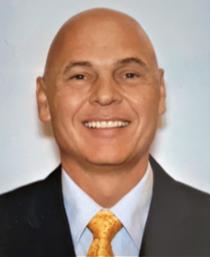
It’s truly commendable to see the UTSA Valdez Institute for Economic Development (VIED) continuing to make such significant strides in its mission to foster economic growth and prosperity within the community, region, and beyond. The commitment to providing low or no-cost training, advising, and development services for individuals, small businesses, and communities reflects our deep dedication to societal advancement and empowerment.
The statistics from the 2023 fiscal year are impressive, indicating a tangible impact on the local economy through the support provided to businesses and entrepreneurs. Securing grants and funding from federal agencies and the State of Texas demonstrates recognition and support for the vital work being carried out by the VIED.
The approach of housing multiple centers under the VIED umbrella, each with its own focus on specific population segments, while collectively striving towards the common goal of economic success, is strategic and effective. It allows for tailored support while leveraging shared resources and expertise.
The emphasis on innovation as a driver of economic prosperity is crucial in today’s rapidly evolving landscape. By fostering innovation in technology transfer, business processes, talent development, and placemaking, the VIED is not only adapting to change but also actively shaping the future economic ecosystems of the communities we serve.
This year’s report highlights only a few examples of the VIED’s work that provide tangible evidence of its impact and effectiveness. It’s clear that our team is dedicated and passionate about their mission, and their accomplishments speak volumes about their commitment and capabilities.
We will continue to explore collaborative opportunities with local businesses, educational institutions, research entities, and community organizations to further enhance the reach and effectiveness of the VIED’s programs and services.
I look forward to seeing how we can further strengthen and deepen our engagement with our stakeholders to evolve and continue making a positive difference in the years to come.
 Rod McSherry Associate Vice President for Innovation & Economic Development
Economic Development
Rod McSherry Associate Vice President for Innovation & Economic Development
Economic Development
ied@utsa.edu
2
The Valdez Institute for
41,231 Businesses Served
1,551 Training Events & Courses
29,665 Training Participants
7,811 Consulting Cases
3,755 Business Research Tasks
Impact
4,042
$2,345,493,056
$39,650
Service Results
Economic Impact
Starts
New Financing & Investments
Jobs Created 7,934 Jobs Retained 545 New Business
914 Business Expansions $243,304,214
New Sales,
Contracts & Exports
New Tax Revenue Generated Our
Community Impact
Economic and
billion is the aggregate amount of new financing & investments | new sales, contracts & exports)
$2.6 Billion In Direct Economic
For 2023 ($2.6
$2.6 billion in Direct Economic Impact

About the Valdez Institute for Economic Development
Founded in 1979, the UTSA Valdez Institute for Economic Development (VIED) is committed to developing talent, innovation and place. Since inception, the VIED has helped over 6,500 businesses open their doors and created more than 70,000 jobs in the Texas economy. It is also the sole agent of the U.S. Government to help transfer the proven methodology of small business development to more than two dozen countries around the world.
The UTSA VIED is unique among U.S. universities in its economic development approach. It receives federal, state and local support for a carefully curated combination of 10 centers and programs that serve startups, existing businesses and policymakers seeking strategic economic growth. It serves local, regional, national and international initiatives.
While each center may have its focused outcome target, the intentional one-stop, synergistic approach to collocating the centers provides more and better access to resources to all of our clients.
Across its platform, the VIED offers low or no-cost training, advising, market research, target audience analysis, access to capital, lab-to-market technology transfer, business startups, and new export market discovery.
The VIED also connects with and amplifies the work of UTSA students, faculty and researchers through partnerships with the business community, municipal organizations and technology accelerators.
We invite you to visit us at our headquarters in the Durango building on the beautiful UTSA downtown campus.
4
Serves:
• Businesses, Small Businesses and Minority-Owned Businesses
• Innovators, Entrepreneurs and Startups
• UTSA Students and Researchers
• Policymakers- Federal, State and Local
• Economic Development Organizations
• Entrepreneurial Support Organizations
Services provided:
• Economic Development
Leadership Planning Networking Training
• Technology
SBIR/STTR Technology Commercialization
• Business Assistance Growth
Start Ups
Planning & Strategy
Access to Financing & Grants Advising Training Networking Certifications
• International & Minority Business Development
Advanced Manufacturing
Digital Credentials
Small Business Network of the Americas
• Government Contracting & Procurement
Cybersecurity Programs & Compliance Training
Emergency Preparedness
HUBzone Program
Employment Practices
Regulatory Compliance
Job Site Safety, Drug-Free Workplace and Effective
HR Management
BidMatch Database-automated government contracting search
• Research
Economic Impact Analysis
Economic Policy Analysis
Market Analysis
Target Audience Analysis
• Trade International Trade
New Import/Export Opportunities
Trade Tariff Relief
Soft Landing Assistance
Foreign Direct Investment Assistance
Operates in:
• UTSA SBDC: 11 Counties
• Apex Accelerator: 42 Counties
• TXSW SBDC Network and UTSA SBDC CGC: 79 Counties
• UTSA SBDC TCC: Texas
• SWTAAC: 5 States
• SBDCNet, MBDC, CCBR: 50 States and Territories
• UTSA SBDC ITC: 24 Countries on 3 Continents:
5
SWTAAC: 5 States SBDCNet, MBDC, CCBR: 50 States and Territories UTSA SBDC: 11 Counties APEX Accelerator: 42 Counties SBDC ITC: 25 Countries on 3 Continents SWTAAC: 5 States SBDCNet, MBDC, CCBR: 50 States and Territories UTSA SBDC: 11 Counties APEX Accelerator: 42 Counties TXSW SBDC Network and CGC: 79 Counties UTSA SBDC ITC: 25 Countries on 3 Continents SWTAAC: 5 States SBDCNet, MBDC, CCBR: 50 States and Territories UTSA SBDC: 11 Counties APEX Accelerator: 42 Counties TXSW SBDC Network and CGC: 79 Counties UTSA SBDC TCC: Texas SBDC ITC: 25 Countries on 3 Continents SWTAAC: 5 States SBDCNet, MBDC, CCBR: 50 States and Territories UTSA SBDC: 11 Counties APEX Accelerator: 42 Counties TXSW SBDC Network and CGC: 79 Counties SBDC ITC: 25 Countries on 3 Continents SWTAAC: 5 States SBDCNet, MBDC, CCBR: 50 States and Territories UTSA SBDC: 11 Counties APEX Accelerator: 42 Counties TXSW SBDC Network and CGC: 79 Counties UTSA SBDC TCC: Texas
SBDC ITC: 25 Countries on 3 Continents SWTAAC: 5 States SBDCNet, MBDC, CCBR: 50 States and Territories UTSA SBDC: 11 Counties APEX Accelerator: 42 Counties TXSW SBDC Network and CGC: 79 Counties UTSA SBDC TCC: Texas
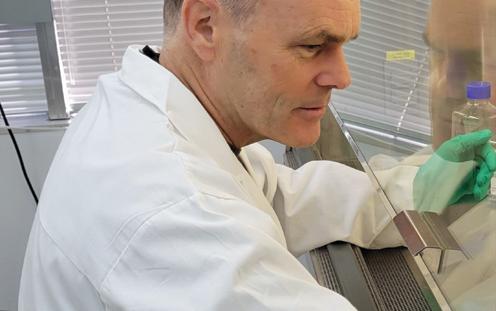
Texas biomedical startup contributing to personalized medicine
Empiri, Inc. is contributing significantly to the advancement of cancer care from drug development to personalized patient care. Their technology is helping pharmaceutical companies by providing a faster and more accurate way to test drugs during development. It can also help oncologists by providing personalized drug response data before treatment selection. Houstonbased Empiri was founded in 2018 by Dr. Kyuson Yun, a world-renowned cancer biology expert, and Dave Gallup, an entrepreneur, and engineer with 30 years of experience.
They recently received funding from the National Science Foundation and the National Institutes of Health/National Cancer Institute (NIH/NCI) to further research and develop their technology toward market commercialization. The Small Business Development Center (SBDC) Technology Commercialization Center (TCC) enrolled Empiri in their Texas – Ideation Discovery Bootcamp, followed by participation in their Pathways SBIR-Assistance cohort, resulting in the submission of a highly competitive proposal to the National Science Foundation SBIR Phase I Program, which was awarded. Additionally, TCC provided subject matter expertise and technical guidance in the calculation of their overhead rate for their multimillion-dollar collaborative NIH/NCI research grant award.

Reinventing and expanding the family business with help from San Antonio SBDC
San Antonio SBDC Senior Business Advisor Lisha Garcia has been working with business owner Natalie Meeks since 2013. The Waters Point business has scenic land that has been in the family since 1932 along the banks where the Blanco River and Cypress Creek meet.
After the historic Memorial Day flood in 2015, Natalie decided to reinvent and expand her business to become a picturesque wedding venue and resort. Her father-inlaw wanted to sell Natalie his land and cabins so she could expand her business.
Garcia helped her through the financial process to acquire the land and expand the business. Waters Point opened in 2016 as a luxurious, riverfront, Hill Country wedding venue and resort.
She named the new business Waters Point after both the place where the two waters meet and where so many historic arrowhead points have been found on the land, left by those that lived there centuries ago.
Through this business reinvention and expansion, 25 jobs were retained.
6
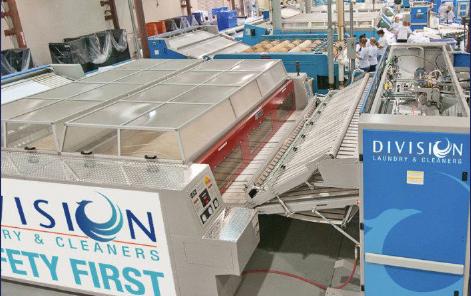
Partnering for US expansion of third-generation family business
The San Antonio Minority Business Development Agency (MBDA) Advanced Manufacturing Center has teamed with San Antonio-based, third-generation family business, Division Laundry & Cleaners to assist it with expansion into new markets across the United States.
With the center’s help, Division has increased sales revenue, accessed capital and created and retained jobs. The support also includes helping Division execute its plan to acquire Defense Health Agency (DHA) business at an enterprise level for multiple markets across the country.
Division is in its 85th year of business and founded on a $100 investment. It has survived a fire that destroyed its facilities and demonstrates this work ethic and resilience as it pursues business expansion in new U.S. markets. In 2022, Division acquired a competitor’s operations in Texas and Oklahoma to service markets in Oklahoma, Arkansas, and the Midwest.
Division embodies the American dream. It is the honored recipient of the family-owned business award, Corazón de San Antonio.
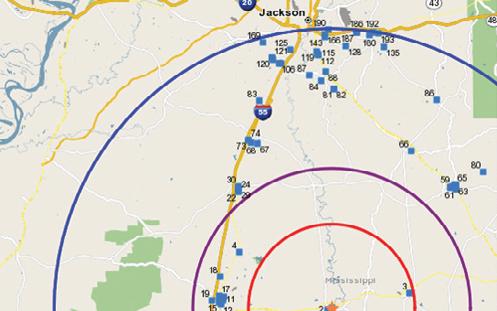
Small business, big nation: celebrating 25 years of SBDCNet serving main street
The SBDC National Information Clearinghouse (SBDCNet) is the official business research and support program for the national SBDC network. This national center’s team serves clients across Texas and the U.S., helping entrepreneurs make better business decisions. For 25 years, it has met the information and resource needs of America’s small business community and working in partnership with SBDCs to ensure their clients’ success.
Utilizing its specialized library collection and resources including GIS market analysis, the center provides SBDCs and their clients with the kinds of powerful information and resources that are often out of reach for most small businesses.
In 2023, the center fulfilled 3,800 custom market research requests. It has completed over 110,000 projects since its inception.
The center also provides meaningful experiential learning opportunities for undergraduate and graduate students. UTSA students research real-world business challenges and hone their professional skills, which makes them increasingly more marketable to Texas employers upon graduation.
7
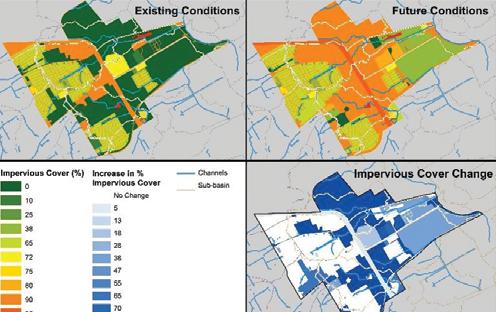
Government contracting certification helps small business grow
Seagull PME is a small business that provides management and engineering solutions for water resources and energy projects. Seagull’s water resources team specializes in resilient and holistic water resources solutions. They are a team of engineers, project managers, scientists, and geographic information services (GIS) professionals.
Gian Villarreal, PE, CFM started working with the Center for Government Contracting in March of 2020.
With the assistance of the CGC and advisor Susannah Munro was able to obtain 8a certification in May 2023. Since then, Seagull hired a new employee and also won several contracts because of CGC assistance.
“Susannah Munro and UTSA were critical to helping me get my 8a certification and guide me through the process,” said Villarreal. “She is a continuous source of information about navigating the complex world of federal and local opportunities. Also, Deirdre Pattillo and UTSA helped me navigate the complexities of human resources and protect our company and our employees.”
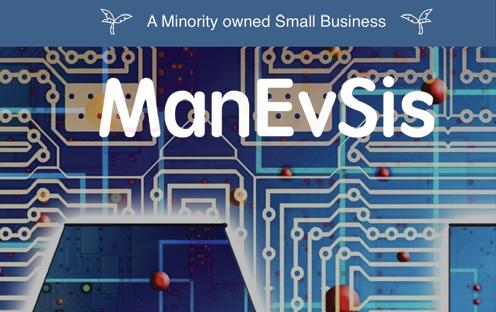
Bid award marks pivotal moment in company’s growth trajectory
Minority-owned small business, ManEvSis, LLC, is a client of the UTSA APEX Accelerator. APEX assisted ManEvSis in navigating a complex procurement process that led to ManEvSis being awarded an $8.7 million bid award. This award is to be able to provide computer software and supplies to Texas’ Independent School District (ISD) Region 7 Education Service Center.
Region 7 Education Service Center serves 95 school districts, 7 charter schools, and 13,305 square miles in 17 East Texas counties. It served over 180,000 students in 2022.
This success story underscores ManEvSis’ commitment to delivering exceptional IT solutions. This bid award positions ManEvSis as a key player in the IT landscape, paving the way for future growth and collaborations in the dynamic education technology sector. With this award, ManEvSis has hired a new employee to help contact each school district regarding supporting their needs.
8
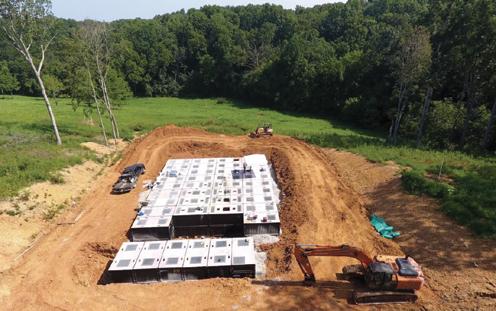
SWTAAC assistance helped increase productivity, sales and employment
Gainey’s Concrete Products was established in 1981 in Holden, Louisiana. In 2019, the company joined the UTSA Southwest Trade Adjustment Assistance Center (TAAC) in order to receive help from the U.S. Economic Development Administration (a bureau of the U.S. Department of Commerce) Trade Adjustment Assistance for Firms (TAAF) program.
Aware of competing imports from China, Canada and Spain, a recovery plan was developed to focus on marketing and expansion. To gain market share, product and brand development became a primary focus. A feasibility study on market expansion was conducted to explore growing portfolio options. The company also looked at reengineering the plant floor for expansion as well as the development of products for the above ground water treatment sector.
After three years, partnering with the TAAF program resulted in the hiring of 6 employees to support their growth. The complete set of initiatives undertaken led to an overall sales increase of 108% and an overall productivity increase of 98%.
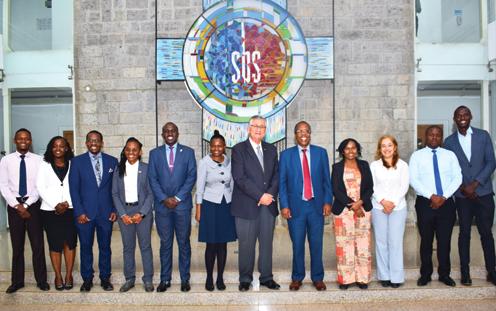
Empowering economic growth in Kenya with help from the SBDC International Trade Center
As part of the UTSA SBDC International Trade Center, the UTSA Center for Global Development (CGD) provides comprehensive technical assistance to international SBDC networks and offer solutions that are straightforward and adaptable to diverse business climates.
In 2022, a transformative collaboration emerged in Kenya between the United States Agency for International Development Kenya, Strathmore University, and UTSA. The primary focus of the relationship was to strategically structure, finance, operate, and manage a national SBDC network tailored to Kenya’s economic landscape. This collaborative effort involved hands-on technical support to ensure the effective implementation of the SBDC methodology, which would position the Kenyan SBDC Network for sustainable long-term growth and success. With UTSA support, in 2023 the new network successfully launched six SBDCs in the counties (states) of Isiolo, Kiambu, Kisumu, Makueni, Mombasa, and Nakuru, positioning Kenya as the first Sub-Saharan African country to adopt the SBDC model.
This is a large step forward to developing SBDC networks in other African nations. This success demonstrates the UTSA CGD’s commitment to the global expansion of the SBDC program.
9

Demonstrating South Texas Medical Center’s economic value to Bexar County
The Center for Community and Business Research (CCBR) concluded a study for the South Texas Medical Center (STMC) evaluating its economic impact on the San Antonio metro area. The STMC continues to maintain its position as a key player in the healthcare and bioscience industry.
The CCBR study found that STMC provides a significant economic impact to Bexar County, with direct, indirect, and induced contributions totaling nearly $11.9 billion in output, supporting over 86,660 jobs, $5.0 billion in wages and salaries, and maintaining $6.5 billion in gross regional product. The STMC also generated $120.8 million in taxes to the State of Texas, and $120.6 million in city and county tax revenues.
For the entire San Antonio Metropolitan Statistical Area, which includes the seven counties surrounding Bexar, total output equaled $13.9 billion supporting 101,350 jobs in the region.

University innovations translate into products to improve human health
UTSA’s Office of Commercialization and Innovation (OCI), a strategic partner with VIED, continued supporting the campus innovation ecosystem. OCI completed 35 new invention disclosures, had 14 U.S. patents issue, and optioned or licensed nine technologies to various companies. Additional highlights of FY23 include:
• UTSA celebrated three new faculty members being inducted as Senior Members in the National Academy of Inventors.
• UTSA is a member of the NSF I-Corps Southwest Hub and two UTSA Faculty-led teams went on to participate in the NSF’s National I-Corps accelerator program.
FY23 highlights of companies developing UTSA technologies include:
• Osteogene has introduced its product to the global market: inroad®, an osteoconductive, bioceramic bone graft for dental applications that emulates the biological microenvironment of bone without donor risk.
• Phage Refinery is a new company developing bacteriophage refining services for applications in humans, animals and plants, enabling rapid personalized therapy alternatives. They have located in UTSA’s New Venture Incubator.
• First Flight Partners launched as a new company in partnership with UTSA’s 2023 Innovator of the Year, Dr. Teja Guda, to bring forward innovations in small medical devices, such as endotracheal tubes.
10
The Valdez Institute for Economic Development:
Ten centers. Tens of thousands of jobs.
Our centers
Texas South-West Small Business Development Center Network (TXSW-SBDC Network) Is comprised of 10 SBDC-affiliated offices. Each office is hosted by a local university or community college within a 79-county region, stretching from the Gulf Coast to South Texas through Central Texas and across parts of West Texas. In partnership with the U.S. Small Business Administration (SBA), The University of Texas at San Antonio (UTSA) administers the Network, its affiliate offices and three specialty centers— SBDC Center for Government Contracting, SBDC International Trade Center and SBDC Technology Commercialization Center.
Michael Gonzalez, CEcD, associate state director (210) 458-2450 michael.gonzalez2@utsa.edu http://www.txsbdc.org
UTSA Small Business Development Center (SBDC) Offers integrated services to meet the needs of experienced small business owners as well as entrepreneurs just starting a business. Servicing San Antonio and the 10 counties surrounding Bexar County, the UTSA SBDC’s professional staff provides confidential, one-on-one business advising at no charge and most
training at no charge with a few training courses being low charge.
Richard Sifuentes, director sasbdc@utsa.edu (210) 458-2460
https://sasbdc.org
UTSA SBDC Center for Government Contracting (CGC)
Provides programs that assist small business owners, veteran entrepreneurs, women-owned small businesses, employers, and entrepreneurs. These services are reflected in the following programs: Texas Cybersecurity Compliance Program, Employer Services and Emergency Preparedness. The service area includes 79 counties of the Texas South-West SBDC Regional Network.
Jaime Martinez, associate director (210) 458-2760
https://cgc.txsbdc.org
UTSA SBDC International Trade Center (ITC)
Is one of the largest and most successful international trade assistance organizations in Texas. It provides technical trade advising, customized market research and innovative training programs to businesses seeking access to global markets. It also assists foreign businesses and investors on starting or expanding operations in Texas.
In addition, it supports foreign governments to create their SBDC networks, which has expanded the implementation of the SBDC model in 24 countries throughout Latin America, the Caribbean, and Africa.
Janette Riddell, associate regional director (210) 458-2470
janette.riddell@utsa.edu
https://texastrade.org
UTSA SBDC Technology Commercialization Center (TCC) Supports science and technology-based innovation and entrepreneurship to foster a globally competitive economy in Texas. The Center provides confidential management advisory services for high-tech entrepreneurs, scientific researchers, start-ups, and established businesses. Clients of the center qualify to receive technical and business assistance with America’s Seed Fund™ (federal funding), technology readiness assessments, intellectual property assistance, venture pitches, federal and state research and development grants/contracts and more.
Bijo Mathew, associate regional director
Bijo.Mathew@utsa.edu (210) 458-2745
https://tcc.txsbdc.org
11
SBDC National Information Clearinghouse (SBDCNet) Is the official nationwide research program of the U.S. Small Business Administration. SBDCNet provides in-depth, customized market research, business development resources and training services to SBDC advisors and their clients.
The Center’s team of researchers is dedicated to meeting the small business information needs of nearly 1,000 Small Business Development Centers across the U.S. and its territories.
Matthew Jackson, director matthew.jackson@utsa.edu 1-800-689-1912 www.sbdcnet.org
Center for Community and Business Research (CCBR) Offers applied economic and business research to serve the needs of economic development agencies; businesses; trade associations; city, state and federal governments; and other community stakeholders in search of information to make well-founded business and policy decisions. CCBR conducts research projects to provide insight into how organizations, communities, or the economy are impacted by major new developments, projects and policies.
Thomas Tunstall, Ph.D. senior director (210) 458-2472 https://ccbr.iedtexas.org
APEX Accelerator (APEX)
The UTSA APEX Accelerator (APEX) is a specialty center of the UTSA (IED) assisting small and large businesses in the 42 county coverage area with no cost advising,
training and networking with local, state, federal and DOD agencies in support of large-scale expansion. The UTSA APEX Accelerator is funded in part through a cooperative agreement with Department of Defense.
Steve Wyatt, J.D., interim director UTSA APEX Accelerator (210) 458-2494
https://apexaccelerator.iedtexas.org
Minority Business Development Agency (MBDA) Business Centers - San Antonio
As one of the largest operators in the Minority Business Development Agency’s network, UTSA operates four MBDA Centers.
The San Antonio MBDA Business Center, Export Center, Advanced Manufacturing Center and MBDA Rural Center South Texas collectively assist minority business enterprises to increase profits and employment numbers by providing targeted management and technical assistance. Services include access to contracts and capital, business matchmaking, specialized training, and referral services in the local and international markets.
Orestes Hubbard, MBA, senior director orestes.hubbard@utsa.edu (210) 458-2480
https://sanantoniombdacenter.com
Southwest Trade Adjustment Assistance Center (SWTAAC) Assists U.S. manufacturing and service firms that are negatively impacted by foreign competition to regain profitable growth. SWTAAC staff provides management consulting and strategic business planning services to help firms in the
five-state region of Texas, Louisiana, Oklahoma, Arkansas and New Mexico. Results include $229 million in sales, 800 retained jobs and a 173% productivity increase.
Steve Wyatt, J.D., executive director Southwest Trade Adjustment Assistance Center richard.wyatt@utsa.edu (210) 458-2494
UTSA Office of Commercialization
The UTSA Office of Commercialization and Innovation (OCI) is a strategic partner with VIED. OCI drives the campus commercialization and innovation ecosystem with intellectual property management and licensing, proof-ofconcept funding, entrepreneurs-inresidence, new venture incubation, entrepreneurial training, startup mentoring support, and other programs that accelerate and ease the transition of novel technologies from the university to industry.
Christine Burke, Ph.D., director of commercialization & technology Transfer christine.burke@utsa.edu (210) 458-8140 https://research.utsa.edu/ collaborate/oci/commercialization. html
12
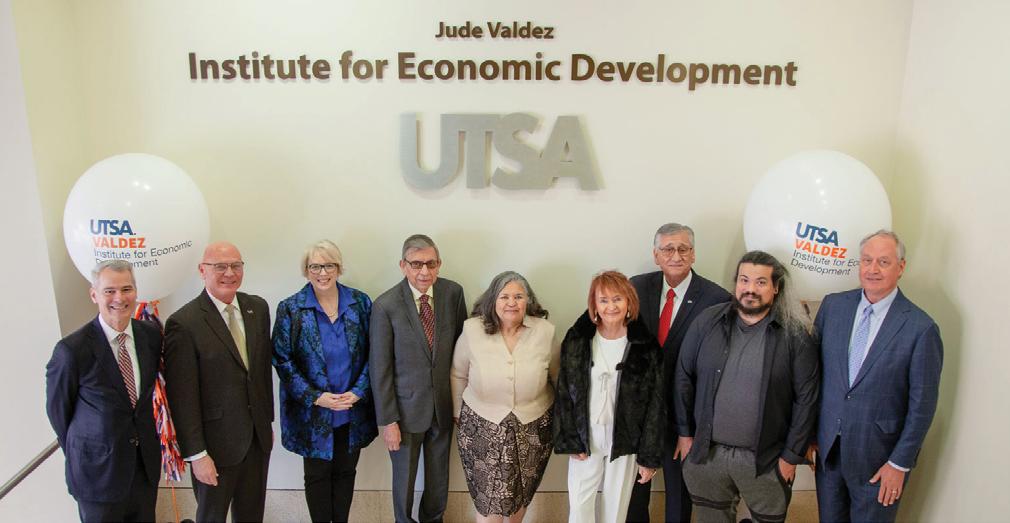
Pictured above, left to right: Karl Miller-Lugo, vice president for advancement and alumni engagement; Rod McSherry, associate vice president for innovation and economic development; JoAnn Browning, interim vice president for research; Jude Valdez with his partner, Norma Cantu; Tita Stasney, Jude’s sister; Albert Salgado, assistant vice president for small business & community development; Nicholas Valdez, Jude’s son; and Taylor Eighmy, president UTSA
About our new name
In recognition of Dr. Jude Valdez’ visionary work to establish the foundational economic development programs that would evolve to become today’s institute, we are now the Valdez Institute for Economic Development (VIED). Starting with two employees and a small federal grant focusing on university integration and economic development support to the community, the VIED today has an operating budget of over $14M and is powered by over 100 economic development professionals and staff.
UTSA would like to thank Dr. Valdez for his pioneering efforts that have established the university as a globally recognized leader in innovative economic development programming. Through his generous support, the VIED will be able to reach and assist more businesses, communities and entrepreneurs in San Antonio and across Texas.
13
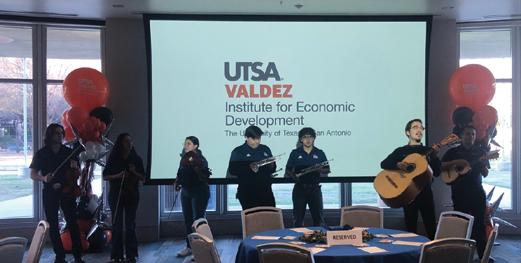

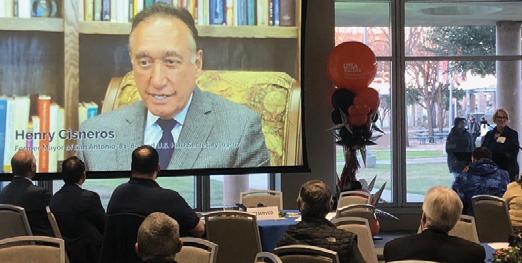

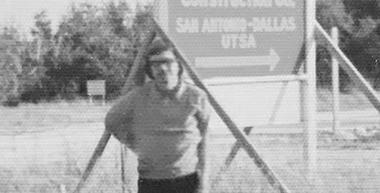
A reception was held in early 2024 to honor Dr. Jude Valdez, where he was recognized by San Antonio Mayor Ron Nirenberg, State Senator Jose Menéndez, The Honorable Henry Cisneros, The Honorable Nelson Wolff, UTSA President Taylor Eighmy, UTSA Interim VP Research JoAnn Browning and UTSA AVP for Innovation and Economic Development Rod McSherry. A dedication plaque and new identifying signage are located in the west lobby of the Durango Building on the UTSA Downtown Campus, the home of the Valdez Institute for Economic Development. All the color photos to the left are from the reception.
Jude began his career at UTSA in 1979 as founder of what was later to become the Institute for Economic Development, and he remained with UTSA for 39 years. Over that course of time, he also held the following positions: adjunct faculty member and Associate Dean, College of Business; Assistant to the President; Vice President for Downtown Operations (charged with the establishment of a Downtown Campus); and Vice President for Community Services.
The black and white photo to the left is of a young Jude Valdez before he went to UT Austin to earn his Ph.D. He was standing at the site of the UTSA main campus that was under construction in 1973. Valdez said when the photo was taken he was hoping he could one day return to San Antonio and work for UTSA. Valdez fulfilled that wish and in doing so, helped many others fulfill their dreams of a brighter future.
14
Advancing society and giving back
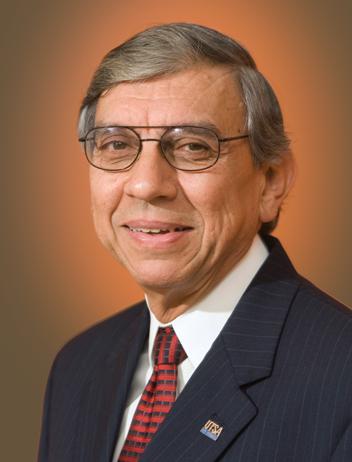 Jude Valdez, Ph.D. Founder of the Valdez Institute for Economic Development
Jude Valdez, Ph.D. Founder of the Valdez Institute for Economic Development
I have thoroughly enjoyed my long, rich and varied career with UTSA in helping to build a better San Antonio and region. UTSA’s mission is accomplished through education, research and community service – all which are, to varying degrees, undertaken at the Institute. Economic development is the primary and foundational focus of the community service mission. The educational mission is addressed by the institute sponsoring student internships, by employing students in its various programs and by clients working with UTSA business school students on case studies. Finally, the research mission is taken up through the Center for Community and Business Research, which is a component of the institute.
When I was appointed vice president for downtown operations, my primary assignment was to develop a downtown campus. This allowed me to apply my economic development experience to make UTSA more accessible to the southern sector of the city through education and community service.
I have established an endowment for the institute because of the impact it has had and continues to have on our area and community. My hat is off to the thousands of Institute staff that currently serve and have served over the past 44 years. They are the ones who make the economic impact in our community and region a reality. I hope this is reason enough to convince you to contribute to the Excellence Fund at the institute so it can continue to thrive and expand its impact in the region and community we all cherish.

To view this report on our website, scan the QR code below.

Values
Innovation:
Fostering a culture of creativity by embracing change, lifelong learning and risk-taking.
Service:
Delivering results and fostering diversity by being responsive, adding value, providing solutions, and collaborating.
Excellence:
Exceeding stakeholder expectations by achieving results, demonstrating leadership, and leveraging our resources and expertise.
Integrity:
Building our reputation by being accountable, credible, ethical, and respectful.
Our Partners:
U.S. Small Business Administration; Minority Business Development Agency; The State of Texas; Economic Development Agency; Department of Defense Office of Small Business Programs; U.S. Department of State; USDA; and Organization of American States





Valdez Institute for Economic Development
The University of Texas at San Antonio 501 W. César E. Chávez Blvd. San Antonio, TX 78207
ied@utsa.edu
www.iedtexas.org
MINORITY BUSINESS DEVELOPMENT AGENCY BUSINESS CENTER OF COMMERCE U.S. DEPARTMENT


 Rod McSherry Associate Vice President for Innovation & Economic Development
Economic Development
Rod McSherry Associate Vice President for Innovation & Economic Development
Economic Development


















 Jude Valdez, Ph.D. Founder of the Valdez Institute for Economic Development
Jude Valdez, Ph.D. Founder of the Valdez Institute for Economic Development






